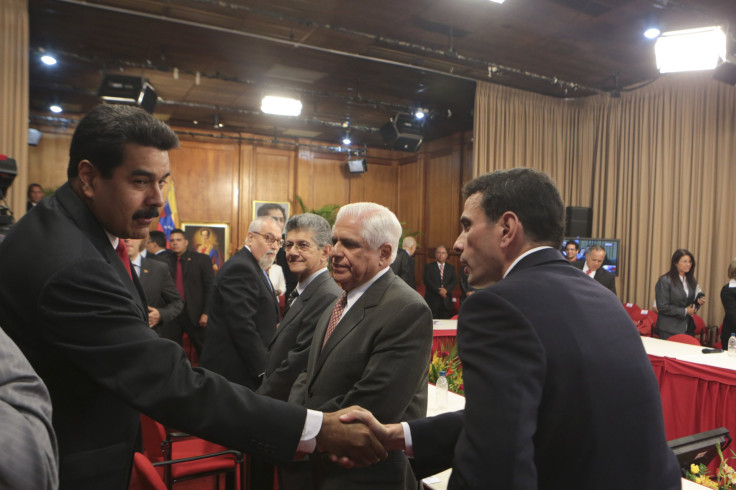
The coalition of Venezuelan opposition groups which backed out of dialogue over key issues with president Nicolás Maduro on May 13, citing insufficient compromises, accused him of making “irresponsible and false” statements one day after Maduro said they had agreed to talks in order to request government posts. “The presidential statement that these meetings were taken by the Democratic Unity Roundtable (MUD) as a system to acquire posts is entirely baseless, as [mediators] the papal Nuncio and the ambassadors of Brazil, Colombia and Ecuador can confirm,” MUD leaders said in a statement.
The same day, Maduro repeated his earlier claim that former conservative lawmaker and key opposition leader María Corina Machado, who was stripped of her seat in the national assembly in April, had planned his murder in a series of emails exchanged with a US envoy to Colombia. Maduro went on to accuse MUD secretary Ramón Guillermo Aveledo and other coalition leaders of “cowardice” and “silent complicity, indirect complicity with murders such as this ex-representative."
The Organization of American States (OAS), a regional block of South American governments which has championed the dialogues, has voiced worry over the state of talks in Venezuela. José Miguel Insulza, the block’s secretary general, told Reuters on Wednesday that the group observed “with sadness that the dialogue is not moving forward,” adding that “we still believe that there is no other way out, and once again we call for the government and the opposition of Venezuela to seek out an understanding.”
Casting a shadow over the dialogues is the possibility of US sanctions against Venezuelan officials accused of being involved in abuses against opposition protestors. A sanctions bill has already passed in the House; another will come to a vote in the Senate in coming weeks. Bipartisan support is strong, though the Obama administration opposes sanctions, saying they could upset the chances that dialogues could bear fruit. The MUD has come out against “sanctions which would prejudice the economy and politics of the country,” with Aveledo telling El Nacional the coalition did not believe that “the Venezuelan people should pay for the errors and mistakes of his governors." The sanctions being discussed would target officials, suspending visas and freezing their assets in the US, as well as allot $15 million to opposition pro-democracy groups in Venezuela.
© 2025 Latin Times. All rights reserved. Do not reproduce without permission.





